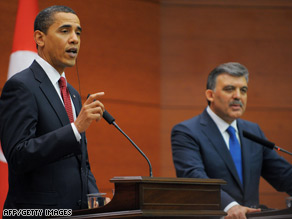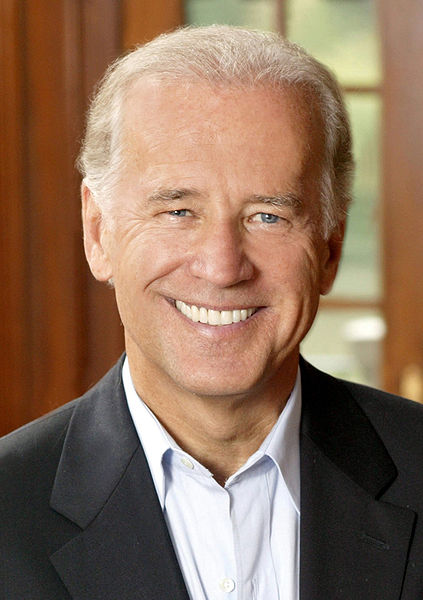
Football fans at Yerevan’s Hrazdan stadium pictured during the Armenia-Turkey match on September 6, 2008.
Armenia’s leadership remained tight-lipped on Friday about details of a potentially ground-breaking agreement with Turkey despite growing pressure from the domestic opposition concerned about its possible implications.
The Armenian government stopped short of explicitly denying the purported specifics of the “roadmap” for the normalization of Turkish-Armenian relations that were reported by Turkish newspapers.
According to the “Sabah” daily, Armenia will formally recognize its existing border with Turkey and agree to the formation of a joint commission of historians tasked with studying the mass killings of Armenians in the Ottoman Empire. It said historians from other countries could also join the commission. Turkey will in return gradually establish full diplomatic relations with Armenia and reopen the Turkish-Armenian frontier closed it 1993, reported “Sabah.”
Another paper, “Hurriyet,” claimed that the lifting of the Turkish blockade will be contingent on a breakthrough in the Nagorno-Karabakh peace process. “It would be up to Turkey to decide whether to open the gate,” it wrote on Friday.
Commenting on the “Sabah” report, Armenian Foreign Ministry spokesman Tigran Balayan said: “One should trust information about such serious issues only if it comes from official sources.” He did not elaborate.
Armenia’s two main opposition forces demanded, meanwhile, the immediate disclosure of the “roadmap” which the two countries’ foreign ministries announced in a joint statement on Wednesday night. The statement said Ankara and Yerevan have agreed on a “comprehensive framework for the normalization of their bilateral relations” but did not give any details.
“The Armenian authorities do not have the public mandate to make such statements and have in effect put Armenian national interests at risk by abusing the principle of confidentiality [of the talks,]” the opposition Zharangutyun (Heritage) said in a statement. It condemned the fact that the agreement was announced on the eve of the annual commemoration of the Armenian genocide.
A similar statement was issued by the larger Armenian National Congress (HAK). “We demand that the authorities immediately disclose that document,” Levon Zurabian, a top HAK representative, told RFE/RL on Friday.
“I am concerned that this statement could stop more countries recognizing the genocide,” said Stepan Demirchian, another HAK leader. “We support the normalization of Turkish-Armenian relations but not at the expense of our national dignity.”
The HAK and its top leader, former President Levon Ter-Petrosian, are strongly opposed to the idea of Turkish and Armenian scholars jointly determining whether the 1915-1918 mass killings constituted a genocide. “If there is such a thing in that document, it is unacceptable to us,” said Zurabian.
That Yerevan agreed to the establishment of a Turkish-Armenian body dealing with historic disputes was seemingly admitted by President Serzh Sarkisian in an interview with “The Wall Street Journal” earlier this week. “You are asking what questions can be addressed by that historical sub-commission,” he said. “I can give you one example. The historic Armenian monuments in the Ottoman Empire and today. There are thousands of such monuments. I am sure that Turkey would have many questions to raise with us.”
When asked whether that can include the genocide issue, Sarkisian replied: “We cannot prohibit Turkey from raising any issue in any of the sub-commissions, just as they cannot limit us in raising any issue.”
The Armenian leader also hit out at Turkish Prime Minister Recep for repeatedly stating this month that Ankara will not normalize ties with Yerevan before a solution is found to the Nagorno-Karabakh conflict. “I think already now the motivation of Turkey has decreased, because as you said Prime Minister Erdogan is now offering preconditions,” he said, speaking two days before the announcement of the “roadmap.”
Sarkisian further made clear that he will not visit Turkey this October for the return match of the two countries’ national soccer teams if the Turkish-Armenian border is not reopened or about to be reopened by then. “I was not supposed to travel to Turkey as a simple tourist or as a football fan,” he said.
The prospect of a breakthrough in Turkish-Armenian relations prompted renewed concerns from Azerbaijan, which maintains that their unconditional normalization would deal a heavy blow to its positions in the Karabakh conflict. Turkish President Abdullah Gul phoned his Azerbaijani counterpart Ilham Aliev late Thursday in a bid to address those concerns.
“There is no misunderstanding in our relations,” Gul told journalists on Friday. “We are in agreement that everything that is being done is of advantage to both our countries, Azerbaijan and Turkey,” he said, according to news agencies.
Erdogan, for his part, appeared to downplay the significance of the Turkish-Armenian understandings. “We will not take any steps that will hurt our [Azeri] brothers,” “Hurriyet Daily News” quoted him as saying. “There is nothing that is signed but a finalized protocol.”
https://www.azatutyun.am/a/1615483.html








 President Obama and Turkish President Abdullah Gul hold a joint news conference Monday.
President Obama and Turkish President Abdullah Gul hold a joint news conference Monday. 
